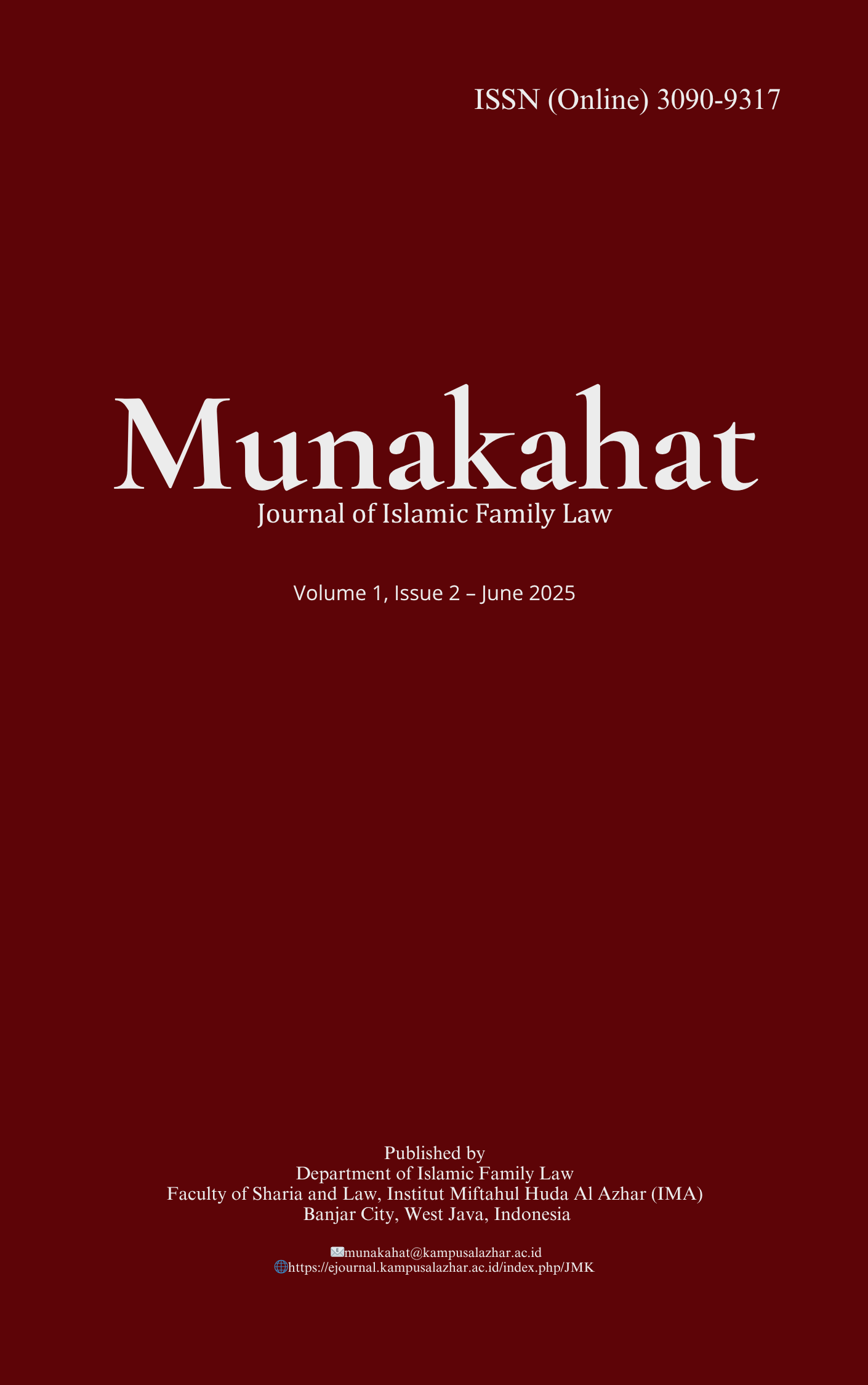Legal Interpretation of Conditional Polygamy Prohibition in Marriage Contracts: A ComparativeStudy in Islamic Law
Published 2025-06-27
Keywords
- Islamic Family Law, Polygamy, Shafi’i Jurisprudence, Marriage Contract, Indonesian Islamic Law
How to Cite
Abstract
Background: The permissibility of polygamy in Islamic law remains a subject of scholarly debate, particularly when marriage contracts include clauses that conditionally prohibit a husband from practicing polygamy. This issue presents a conflict between classical Islamic jurisprudence and contemporary statutory reforms.
Objective: This study aims to examine the legal status of conditional stipulations on polygamy in marriage contracts by comparing the classical position of the Shafi’i school with the statutory provisions in the Indonesian Compilation of Islamic Law (Kompilasi Hukum Islam/KHI).
Methods: This research adopts a qualitative-normative approach using doctrinal legal analysis. It reviews classical juristic texts, including the Shafi’i madhhab, and codified Indonesian Islamic law. The study also engages with Qur'anic exegesis and scholarly commentary to interpret the legal and ethical dimensions of conditional stipulations (shurūṭ).
Findings: According to Imam Shafi’i, conditions that restrict a husband from lawful acts—such as polygamy—are considered invalid, although the marriage remains legally valid. In contrast, KHI permits such clauses if they uphold justice and are consistent with Qur’anic values, especially Surah An-Nisa (4:3), which emphasizes fairness in polygamous relationships. This divergence reflects differing responses to the evolving needs of Muslim societies regarding gender justice and family stability.
Conclusion: The study underscores the need for a dynamic interpretation of Islamic family law that accommodates classical legal principles alongside contemporary ethical imperatives. It also affirms the legal plausibility and reformist value of incorporating conditional stipulations in modern Muslim marriage contracts.
Novelty: This paper contributes a comparative tafsir-based legal analysis that bridges classical Shafi’i jurisprudence with the statutory Islamic legal system in Indonesia, offering new insights into the legitimacy and enforceability of conditional polygamy prohibitions in Muslim-majority legal contexts.

